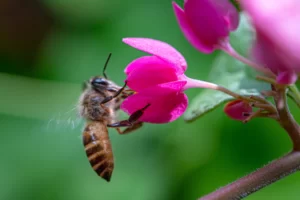Table of Contents
Introduction
Cats are known for their selective eating habits, but what about honey? Can cats enjoy this sweet treat or is it harmful to their health? In this article, we will explore the topic of whether cats can eat honey and discuss the potential benefits and risks associated with feeding honey to your furry friend. So, let’s dive in and find out if honey is safe for cats!
Can Cats Have Honey?
The short answer is yes, cats can safely eat honey in small amounts. Honey is not toxic to cats and can even provide some health benefits. However, it is important to note that moderation is key when feeding honey to your cat. Consuming too much honey can lead to negative side effects such as vomiting, obesity, and diarrhea.
The Nutritional Benefits of Honey for Cats
Honey contains several beneficial properties that can be advantageous for your cat’s health. It has antibacterial properties, amino acids, and antioxidants. Additionally, honey can help control blood pressure, improve cholesterol levels, and boost the immune system. However, it is important to remember that honey should not replace your cat’s regular diet. It lacks essential nutrients such as dietary fiber and protein, which can only be obtained from real meat.
How Much Honey Is Safe for Cats?
When it comes to feeding honey to your cat, quantity matters. It is recommended to give no more than half a teaspoon of honey per day to your feline friend. This small amount ensures that your cat can enjoy the benefits of honey without consuming an excessive amount of sugar. Remember, cats are obligate carnivores, and their diet should primarily consist of meat-based foods.
Potential Risks and Side Effects of Feeding Honey to Cats
While honey is generally safe for cats, there are some risks and side effects to be aware of. Feeding your cat large quantities of honey can lead to digestion problems such as diarrhea. Additionally, cats with diabetes should avoid honey as it can cause a spike in insulin levels. It is always best to consult with your veterinarian before introducing honey or any new food into your cat’s diet.
Using Honey for Healing Wounds in Cats
Interestingly, honey can be used topically to aid in the healing of wounds in cats. The antibacterial properties of honey can help prevent infection and promote the growth of healthy tissue. However, it is important to use honey in its raw form for this purpose and to consult with your veterinarian before applying it to your cat’s wounds.
Can Honey Help with Allergies and Sore Throats in Cats?
Honey has been known to provide relief for cats suffering from allergies and sore throats. The consumption of honey can help suppress allergens and alleviate symptoms caused by pollen, food, and the surrounding environment. However, it is important to note that honey should not be used as a sole treatment for allergies or sore throats in cats. If your cat is experiencing these issues, it is best to consult with your veterinarian for proper diagnosis and treatment.
Feeding Honey to Kittens
If you have kittens, you may be wondering if it is safe to feed them honey. While small amounts of honey can benefit kittens, it is important to consider their overall health and immune system strength. Kittens with weak digestive systems or health conditions should not be given honey. Additionally, it is crucial to provide kittens with a balanced diet that includes protein from meat and essential nutrients for their growth and development.
Conclusion
In conclusion, cats can safely consume honey in small amounts. Honey can provide some health benefits to cats, such as controlling blood pressure, improving cholesterol levels, and boosting the immune system. However, it is important to feed honey to your cat in moderation and to consult with your veterinarian before introducing any new food into their diet. Remember, cats are obligate carnivores, and their primary source of nutrition should come from meat-based foods. So, while honey can be a sweet treat for your feline friend, it should not replace their regular diet.



